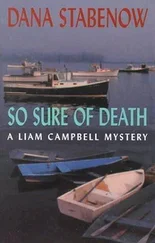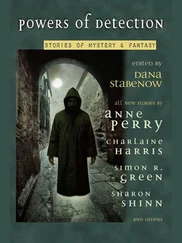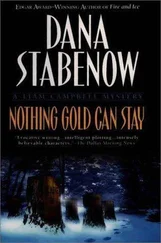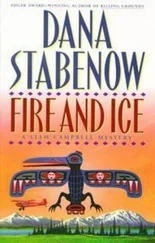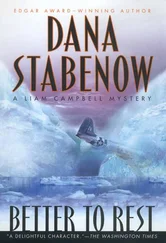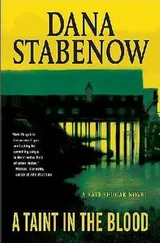The snow machine took a sudden dip in its stride. Mutt bumped into Kate but kept her balance.
At the top of a long slope that curved right, she slowed enough to take the turnoff. This trail was barely a rut between thick stands of spruce, and it required attention and a slow speed, so slow that Mutt grew impatient and hopped off to streak ahead, her plate-sized feet skimming over the surface.
A few minutes later, Kate pulled into a clearing and killed the engine. The rising moon lit a peaceful woodland scene right out of Laura Ingalls Wilder. A small log cabin perched on a precipitous hillside. The foundation was made of smooth gray rocks from the Kanuyaq River, overshadowed by a large deck that projected from the first floor, looking south. The roof was peaked and frosted with two feet of snow, through which a stovepipe chimney rose. A thick spiral of smoke curled from the top. Trees crowded around the eaves as if for comfort or, perhaps, to listen in on conversations that over the years had had much to do with them.
Two large picture windows set into the walls of the second floor were bright, lit from within. A long set of wooden stairs led to the deck, at the top of which there was a door, open. Against the light streaming out into the night, Kate could see a thin, stooped figure scratching Mutt’s head. Mutt’s tail was wagging hard enough to make her butt fall off, but there were no lavish kisses exchanged. Mutt was a strict heterosexual, even across species, and, save only Kate, an all-man dog.
“Come on up, Kate,” a voice said. Kate killed the engine and climbed the stairs.
Inside, there was barely enough room to inhale, it was so crowded with furniture and stacks of papers, books, and magazines that one had to turn sideways to get from one side of the house to the other. An Earth stove radiated heat from the center of the room. An upright piano stood in another corner, piled high with sheet music. In a third corner was the kitchen, a counter with a small propane stove on it, a sink in it, and doorless cabinets above and below jammed with cans and bags. An aroma of savory stew lingered in the air, along with- Aha. A pie in a deep dish sat on the counter, perfectly browned and oozing dark red juice. A small square table was almost visible beneath an old manual typewriter, a ream of typing paper, and piles of what looked like legal documents and receipts. An enormous black cat looked out from her seat on one of the two upright wooden chairs shoved beneath the table and gave Mutt a perfunctory hiss, which Mutt regally ignored. Noblesse oblige.
Like Kate’s cabin, this one had a loft for sleeping. The fourth corner was for living. Two comfortable-looking chairs and a small couch were within easy reach of a coffee table, a tired slab of ersatz wood covered with heel marks and glass rings and an overflowing ashtray.
Every available inch of wall space was given over to bookshelves, and every shelf was full. In the hissing light of the Coleman lanterns, it could be seen that the titles were organized alphabetically by author, and separated into fiction u) and nonfiction. With difficulty, Kate restrained from diving in headfirst. She shucked out of parka and bib overalls and took a seat on the couch. Mutt leapt up gracefully beside her and sat grinning at the woman in the chair opposite.
Dana Willner was thin to the point of emaciation, with sparse white hair. pulled back into a severe knot at the nape of her neck. Her nose was large and hooked, her small, faded blue eyes narrow and fierce. She wore button-front Levi’s and a blue plaid wool shirt, the elbows worn through to the light blue thermal underwear beneath. A cigarette was tucked into the corner of her mouth, smoke curling up to form a ragged halo around her head. Her cane, a twisted affair made of diamond willow and heavily varnished, leaned against the arm of her chair. Her pale pink fuzzy footwear had eyes and ears and whiskers. “I’m liking the bunny slippers, Dina,” Kate said.
Dina raised a foot to regard it with satisfaction. “Nice, aren’t they?”
“I’ll have to get a pair for myself. Thanks, Ruthe.” She accepted a heavy white mug of coffee.
Cuthe Baumaji handed Dina a mug and settled into the other chair. “”The stew’ll be hot in about ten minutes.“
“Caribou?” Kate said hopefully.
“Moose.”
Kate smiled. Not bad for second-best. Life was good.
Ruthe was tall and slender, her hair a short mop of silky curls that had once been blond and were now a soft white gold that still clustered thickly around her face. Her skin was clear and pale, with crow’s feet around her large brown eyes and laugh lines around her wide mouth. She wore khaki slacks, a pumpkin-colored sweater over a white turtleneck, and chunky white socks. The only thing spoiling the effect was the wood slivers and pine needles adhering to the soles of the socks.
Silence was not the enemy to these two women, and Kate sipped her coffee and thought about them.
Nobody in the Park knew how old they were, but everyone knew the legend. How Dina and Ruthe had flown for the WASPs during World War II, towing targets over the Atlantic Ocean for fighter pilots to practice on. How rumor had it that one of them had been the WASP pilot instructor Paul Tibbets had tapped to fly the new Boeing bomber, to ‘ shame the male pilots afraid to fly it into climbing into the cockpit. How, after the war, Dina and Ruthe had been unwilling to give up flying and in 1946 had come to Alaska in search of jobs in the air. How in 1947 they had teamed up with Arthur Hopperman of Hopper Holidays, a travel agency out of Fairbanks that specialized in guiding hunters and fishermen to record kills in the Alaska Bush. How in 1949 they had bought out Art, acquired two de Havilland Beavers, and started flying tourists into remote lodges in the Bush, pioneering eco-tourism before it was fashionable enough to merit the hyphen. How in 1951 they had bought this cabin and the surrounding eighty acres from a homesteader heading south for the last time and had proceeded to build another ten cabins farther up the hill, along with a bathhouse, a cookhouse, a mess hall, and a greenhouse, and had started flying tourists into Niniltna and putting them up at Camp Theodore, which they had named for Theodore Roosevelt.
That was a sign right there, all the Park rats said, and they waited grimly, rifles in hand, for Ruthe and Dina to start preaching conservation. They didn’t have to wait long, and Ruthe and Dina didn’t just preach it; they practiced it. “To leave as small a footprint as possible” was their declared and shameless intention. They grew their own food; they even had half a dozen apple trees that they actually managed to coerce into bearing fruit. They recycled paper. They had a compost heap. They avoided the use of plastic. They wouldn’t allow hunting on their property, which, since it was only eighty acres, didn’t amount to much of a statement, but then they started lobbying in Juneau and Washington, D.C., for stronger laws governing the taking offish and game, and the disposal of human waste in the Bush, and the damming of rivers and streams for power, and the use of heavy equipment in gold mining. Most damning of all, they were personal friends of Jimmy Carter, who visited Camp Theodore at least once every year, and sometimes twice.
That alone should have been enough to ostracize them, to make and keep them bunny-loving, tree-hugging outcasts, but, like everything else, it wasn’t that simple. Ruthe and Dina were too nice, too smart, too funny, too, well, just too damn authentic. Alaskans pride themselves on what makes them different from Outsiders, and, as Mac Devlin put it, “You don’t get much different than a coupla old lesbos living way the hell and gone up a mountain, selling the view to a buncha tree huggers, and making a damn good living at it, too.” “And how can you hate someone who was a WASP?” George Perry said. “They care about the land,” Ekaterina Moonin Shugak said simply, and they were in.
Читать дальше

